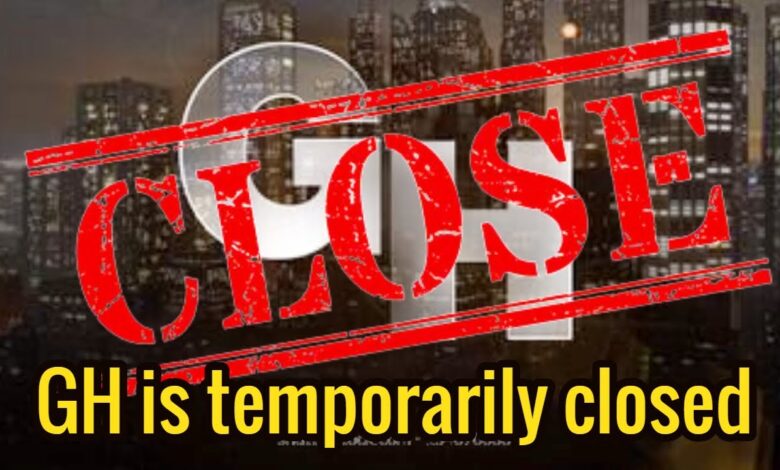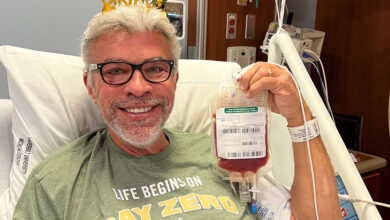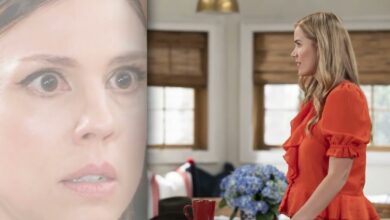SAD NEWS! General Hospital Spoilers: GH sued, temporarily closed to move to new online platform

General Hospital Faces a Streaming Showdown: Disney and YouTube TV Battle Could Reshape the Future of Daytime Drama
In a television landscape already marked by constant evolution, one of daytime’s most enduring institutions—General Hospital—now stands at the center of a major industry storm. The ongoing contract dispute between Disney and YouTube TV has reached a critical juncture, with their distribution agreement set to expire on October 30, 2025. For millions of General Hospital fans, this looming deadline represents more than just another corporate clash—it’s a direct threat to their daily connection with the residents of Port Charles.

As the clock ticks down, tensions are mounting. Disney, which owns ABC (the longtime home of General Hospital), accuses YouTube TV’s parent company, Google, of attempting to undercut the value of its content. Disney insists that YouTube TV’s proposed deal would drastically undervalue its programming—content that includes some of the most popular channels in American television, from ABC to ESPN to the Disney Channel.
YouTube TV, meanwhile, argues that Disney’s demands are unrealistic and would force subscription prices to skyrocket, potentially driving away the very viewers both sides are fighting to retain. The standoff has quickly turned into a power struggle that could redefine how audiences access their favorite shows, and General Hospital may end up as collateral damage.
A High-Stakes Negotiation with Millions on the Line
For Disney, maintaining access to YouTube TV’s vast subscriber base is crucial. The platform has become one of the largest live TV streaming services in the United States, offering millions of households an alternative to traditional cable. Losing that distribution would mean losing visibility, advertising reach, and potentially a large portion of General Hospital’s devoted audience.
But YouTube TV is equally powerful in this equation. As the biggest over-the-top pay-TV provider, Google holds significant leverage in determining which networks stay and which go. If a deal isn’t reached, YouTube TV could drop all Disney-owned channels—including ABC—effectively cutting off General Hospital from millions of fans who rely on the platform to keep up with their favorite daytime drama.
These corporate disputes are not new. Fox, NBCUniversal, and other major content providers have engaged in similar battles over streaming rights and carriage fees in recent years. However, what makes this situation unique is Disney’s outsized influence over television culture. Losing ABC would not just mean missing out on General Hospital—it would also impact live sports, news programming, and family entertainment staples.
General Hospital Fans Caught in the Crossfire
For fans of General Hospital, the uncertainty is unbearable. The soap has been a daily ritual for generations—a source of comfort, connection, and continuity. But if YouTube TV loses ABC, fans who have cut the cord from cable may suddenly find themselves without access to live broadcasts or the ability to record and rewatch episodes.
Many have already turned to YouTube TV as a more affordable and flexible alternative to cable. Now, they face the prospect of scrambling to find another platform, such as Hulu, which still streams General Hospital. But Hulu comes with its own costs, and not every viewer is willing—or able—to add another subscription just to follow one show.
The frustration is palpable across social media. Viewers express anger that they’re once again being caught in the middle of a corporate tug-of-war. They switched to streaming for convenience and affordability—yet now find themselves paying more, not less, while losing control over where and how they watch their favorite programs.
The Broader Context: An Industry in Flux
The Disney–YouTube TV dispute is part of a much larger trend shaking the entertainment industry to its core. The traditional television model—where networks ruled the airwaves and audiences tuned in at set times—is rapidly crumbling. Streaming platforms have redefined how people consume media, favoring on-demand access and binge-watchable formats over the slow, serialized storytelling of daytime soaps.
For General Hospital, a show that has survived for more than 60 years by evolving with the times, the current turmoil represents one of its most daunting challenges yet. The combination of broadcast disruptions, like the recent World Series preemptions, and potential streaming blackouts has left fans on edge.
More than just another scheduling inconvenience, this moment feels existential. Fans are asking: If ABC disappears from YouTube TV, and if broadcast television continues to decline, what will become of General Hospital?
The Looming Hiatus and Its Emotional Impact
Recent production interruptions have already caused temporary breaks in GH’s broadcast schedule, but this latest disruption threatens to extend far beyond a few missed episodes. The idea of a prolonged hiatus—or worse, an indefinite blackout—is sparking deep anxiety among fans.
For decades, General Hospital has been more than a show—it’s been part of the fabric of daily life. Losing that connection feels, to many, like losing a friend. The soap has provided an escape from reality, a sense of community, and a familiar rhythm that has endured through generations.
Now, viewers face the possibility that their beloved show could vanish from their screens without warning. The uncertainty is especially painful for longtime fans who have followed the intricate storylines of characters like Sonny, Carly, and Jason for years. For them, General Hospital isn’t just entertainment—it’s a shared emotional experience that binds families, friends, and communities together.
The Changing Nature of Daytime Television
This latest crisis highlights an uncomfortable truth: the world of daytime soap operas is shrinking. Declining ratings, rising production costs, and the dominance of streaming services have put pressure on networks to rethink their strategies.
Soap operas, once the beating heart of daytime TV, are now competing against reality shows, talk programs, and digital-first entertainment. Fewer people tune in live, preferring instead to stream shows on demand. For networks like ABC, that means reevaluating whether daily dramas like General Hospital can continue in their current form—or whether they must evolve to survive.
The disruption is taking a toll not just on fans, but also on the people who bring the show to life. The actors, writers, and production crew—all of whom have dedicated years, even decades, to General Hospital—now face uncertainty about their future. For them, this isn’t just a show; it’s a livelihood and a creative home.
Could General Hospital Move to Disney Plus?
Behind the scenes, one solution reportedly under consideration is a full transition of General Hospital to Disney Plus. This would mark a seismic shift for the soap—and for the industry at large.
Disney Plus, known primarily for its family-friendly films and original series, would represent an entirely new ecosystem for GH. While the platform offers global reach and creative flexibility, it also introduces risks. Moving to a streaming-only model could alienate traditional viewers who prefer live television or who can’t afford another paid service.
It could also alter the storytelling format itself. Soap operas are designed to unfold slowly, episode by episode, with cliffhangers that keep audiences tuning in daily. Streaming platforms, by contrast, often favor binge-watching formats, releasing multiple episodes at once. Adapting GH’s structure to fit that model could fundamentally change the show’s rhythm and pacing—potentially disrupting the emotional connection fans have built over decades.
The End of the Communal Experience?
For millions of General Hospital fans, part of the joy of watching the show lies in its shared experience—the collective excitement of discussing each new twist as it happens. The daily “water cooler” conversations, the online debates, the live reactions to shocking revelations—these moments have kept GH culturally alive for more than half a century.
If the show moves exclusively to streaming, much of that communal experience could be lost. Viewers watching episodes on their own schedules won’t share the same real-time engagement that has defined the soap opera tradition. What was once a shared ritual could become an isolated act.
An Uncertain Future
As October 30th approaches, the clock is ticking—not just for Disney and YouTube TV, but for General Hospital itself. The decisions made in this negotiation could determine whether the soap continues to thrive on traditional broadcast, transitions fully to streaming, or faces a painful decline.
For now, fans can only watch and wait. Hulu remains an option, but for many, that’s a poor substitute for the live broadcasts they’ve known and loved. The uncertainty surrounding GH’s future has created a deep sense of anxiety within the fandom, amplified by the broader challenges facing daytime television as a whole.
Whatever the outcome, one thing is certain: the battle between Disney and YouTube TV marks a turning point not only for General Hospital but for the entire industry. The future of television is being rewritten in real time—and soap operas, once the backbone of daytime entertainment, must find a way to adapt or risk fading into history.
For General Hospital fans, the hope remains simple: that when the dust settles, they’ll still be able to tune in, watch the drama unfold, and keep the heart of Port Charles beating—where it belongs.




